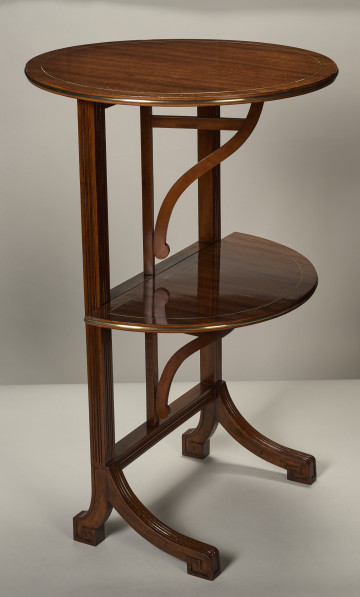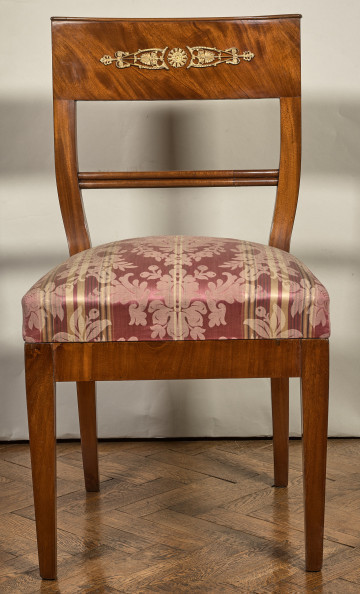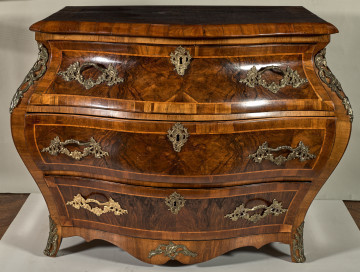
Table
19th (?) century
Castle Museum in Łańcut
Part of the collection: Meble i wyposażenie wnętrz
After the end of the French Revolution and the fall of the Directory, which programmed simplicity in interior design, a new style dominated art in the early 19th century, it appeared with Napoleon Bonaparte's coming to power and was called the imperial, in French' empire', style. The new fashion expressed the personal tastes of Napoleon I inspired by the power of ancient civilisations - Greek, Roman and Egyptian. The empire style became a propaganda tool for glorifying the French Empire and its ruler. Widespread in Europe, the style developed in Poland fascinated with Napoleon's military victories, which gave hope for the country to regain its lost independence. In interior design, the new fashion was distinguished by the direct borrowing of ancient patterns. Where they were lacking, pseudo-antique works were created. That could be seen particularly well in the furniture industry. The Empire style imposed strict symmetry, smooth surfaces and distinct lines. Initially, furniture was made mainly of mahogany, which later was used as a thin veneer to cover constructions made of other types of wood. The ancient epochs were referred to by the shapes of the furniture and ornaments cast in bronze and gilded. On the presented chair, coming together with five others and a sofa from the set S.7788MŁ; S.7825 - 7830MŁ, there are rosettes and openwork palmettes exposed on the backrest. The feeling of majesty, dignity, stability and elegance in the shapes of the empire furnishings harmonised with the comfort of use. Furniture intended for sitting was produced in a rich assortment and equipped with upholstered seats. The leaning or bending of the backrests of chairs ensured comfort during prolonged sitting. Teresa Bagińska-Żurawska https://orcid.org/0000-0002-9243-3967
Author / creator
Dimensions
height: 87 cm, width: 48 cm
Object type
Furniture and interior fittings
Technique
cast
Material
fabric, bronze, wood, veneer, mahogany wood
Creation time / dating
Creation / finding place
Owner
Castle Museum in Łańcut
Identification number
Location / status

19th (?) century
Castle Museum in Łańcut

20th century
Castle Museum in Łańcut

18th century
Castle Museum in Łańcut
DISCOVER this TOPIC
National Museum in Lublin
DISCOVER this PATH
Educational path